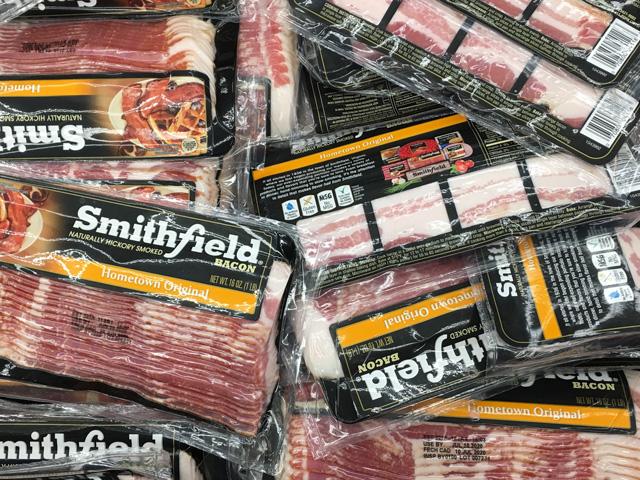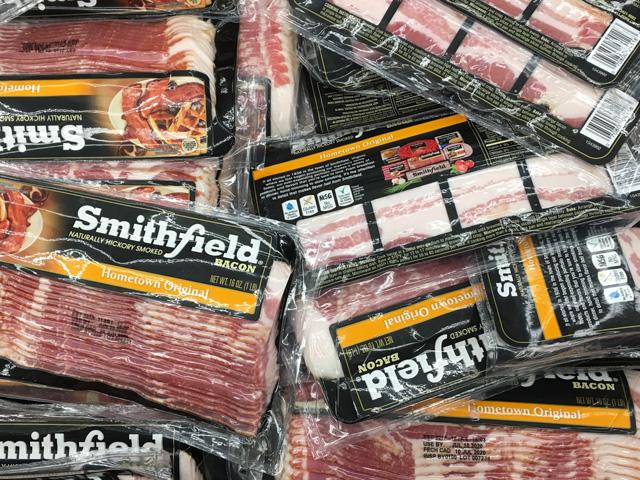Ag Policy Blog
House Ag Chairman Looks to Address Prop 12 Ruling in Farm Bill
CQ/Roll Call reports the chairman of the House Agriculture Committee will look at using the farm bill to deal with California's Proposition 12 and similar state laws tied to animal welfare.
Rep. Glenn "GT" Thompson, R-Pa., said during a farm-bill forum at Farmfest in Minnesota on Wednesday that the U.S. Supreme Court ruling on Proposition 12 noted Congress has the authority to address interstate commerce issues but had not chosen to assert its authority over animal welfare laws in individual states. That's now creating a patchwork of laws and different rules for individual states.
"They let it stand because they are tired of doing Congress' work. They said this needs to be fixed," CQ/Roll Call quoted Thompson.
Earlier in the week in Maine, Thompson said at a farm-bill listening session that he hopes to have a draft of the farm bill by the end of August and possibly hold a committee markup in mid-September if he can get floor time for the bill.
This brings us to the "Ending Agricultural Trade Suppression" bill, or EATS Act, which is sponsored by Rep. Ashley Hinson, R-Iowa, and 29 co-sponsors in the House, all Republicans. The Senate version is led by Sen. Roger Marshall, R-Kansas, with 13 co-sponsors, also all Republicans.
P[L1] D[0x0] M[300x250] OOP[F] ADUNIT[] T[]
The lack of Democratic support likely complicates getting the EATS Act into the Senate bill far more than the House bill right now. The bigger question is whether such language would make it into a final farm-bill conference report.
Some groups have already mounted attacks against the EATS bill, particularly the Organization for Competitive Markets, but backing the bill also are groups such as the National Pork Producers Council -- obviously -- and other national livestock groups.
Prop 12 makes it a criminal offense and civil violation to sell whole pork meat in California unless the pig it comes from is born to a sow that was housed within 24 square feet of space and in conditions that allow the sow to turn around without touching an enclosure. Prop 12 applies to any uncooked pork sold in the state, regardless of whether it was raised in California.
Massachusetts also has a similar law, the Act to Prevent Cruelty to Farm Animals, known as Question 3, which now is facing a lawsuit filed last month led by Missouri-based Triumph Foods. The Massachusetts law was originally approved in 2016, but state officials keep pushing back the compliance date with enforcement now scheduled to start Aug. 23.
Despite complaints about high prices and empty shelves in California for pork and eggs, Karen Ross, secretary of the California Department of Food and Agriculture told reporters earlier this week that stores have until the end of the year to start complying with Proposition 12.
"If somebody's showing you empty shelves, it's for other reasons," Ross said.
See, "California's Top Ag Official Says State Continues Work to Implement Prop 12," https://www.dtnpf.com/…
Also see, "House Ag Chair Talks About Scheduling for Farm Bill During Maine Trip," https://www.dtnpf.com/…
Chris Clayton can be reached at Chris.Clayton@dtn.com
Follow him on X, the social media site formerly known as Twitter, @ChrisClaytonDTN
(c) Copyright 2023 DTN, LLC. All rights reserved.






Comments
To comment, please Log In or Join our Community .